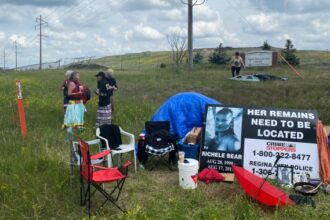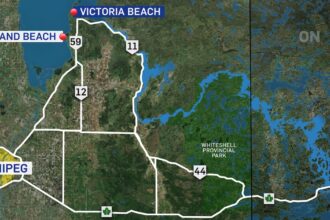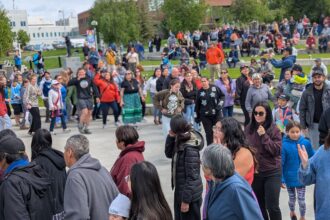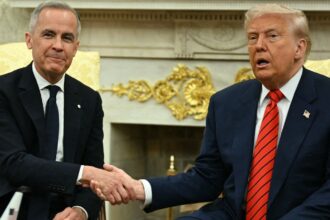In a move that has intensified tensions between Indigenous leadership and federal-provincial relations, the Federation of Sovereign Indigenous Nations (FSIN) has publicly condemned its exclusion from the recent First Ministers Meeting held in Saskatoon. The high-profile gathering, which brought together provincial premiers and the Prime Minister to discuss critical national issues, proceeded without formal Indigenous representation despite the meeting taking place on Treaty 6 Territory.
“Once again, we witness decisions being made about us, without us,” said FSIN Chief Bobby Cameron in a strongly-worded statement released yesterday. “This continued pattern of exclusion directly contradicts the federal government’s stated commitment to reconciliation and nation-to-nation relationships.”
The First Ministers Meeting, which addressed pressing concerns including healthcare funding, economic development, and environmental policy, represents a crucial forum where major national decisions take shape. According to the FSIN, the absence of First Nations voices at such gatherings perpetuates a troubling colonial dynamic where Indigenous perspectives remain sidelined on matters directly affecting their communities.
Saskatchewan Premier Scott Moe defended the meeting structure, noting that “these gatherings follow established protocols for federal-provincial discussions,” but acknowledged that “additional dialogue with Indigenous leadership on shared priorities remains essential.” However, many Indigenous governance experts view this justification as insufficient, particularly given recent federal commitments to implement the United Nations Declaration on the Rights of Indigenous Peoples.
The FSIN’s criticism extends beyond mere symbolic representation. Chief Cameron emphasized that several agenda items, including resource development, infrastructure projects, and climate initiatives, directly impact Treaty rights and First Nations territories. Without meaningful Indigenous participation, the federation argues, any resulting policies risk perpetuating inequities and potentially violating constitutional obligations to consult.
This latest tension emerges against a backdrop of strained progress on reconciliation efforts across Canada. While some provinces have made advances in Indigenous engagement, consistent inclusion at the highest levels of intergovernmental dialogue remains elusive. Indigenous policy analysts point to this exclusion as emblematic of deeper structural barriers to true nation-to-nation relationships.
“The irony of discussing national unity and cooperative federalism while excluding the original treaty partners cannot be overstated,” remarked Dr. Kimberly Marshall, Indigenous governance specialist at the University of Saskatchewan. “This continues a troubling pattern where Indigenous peoples are treated as stakeholders rather than rights-holders with constitutional standing.”
The FSIN has called for immediate reforms to the First Ministers Meeting format, proposing a permanent Indigenous leadership delegation at all future gatherings. This proposal aligns with recommendations from the Truth and Reconciliation Commission and echoes similar structures already implemented in other forums like the Council of the Federation, where Indigenous organizations have secured observer status.
Prime Minister Justin Trudeau’s office responded with assurances that “engagement with First Nations, Métis and Inuit leadership remains a priority,” but stopped short of committing to structural changes for future First Ministers Meetings. This hesitation raises questions about the practical implementation of reconciliation principles in Canada’s highest political circles.
As this story continues to develop, it prompts a critical question for all Canadians: In a nation built upon treaties and committed to a renewed relationship with Indigenous peoples, can we truly address our most pressing challenges without ensuring Indigenous nations have an equal place at the decision-making table?










